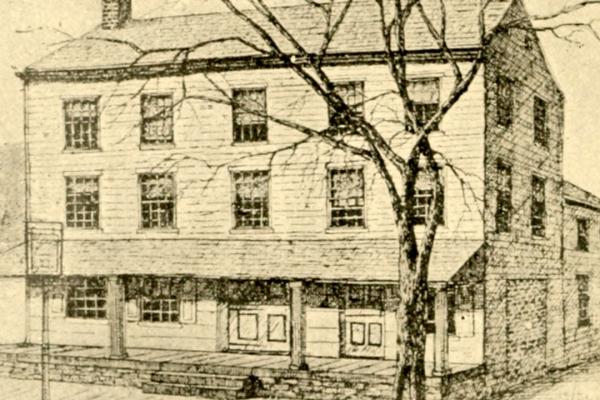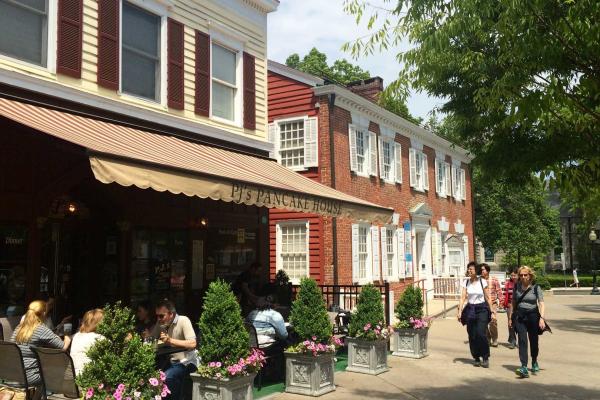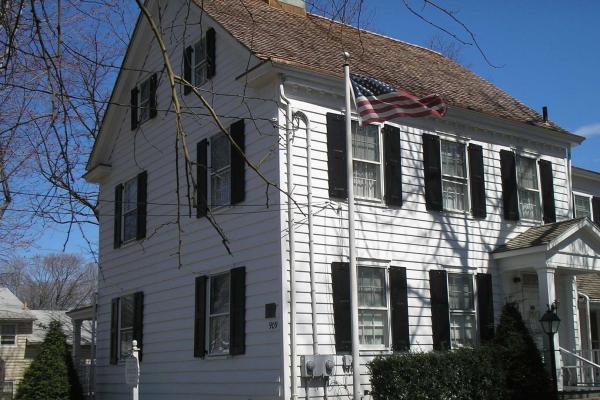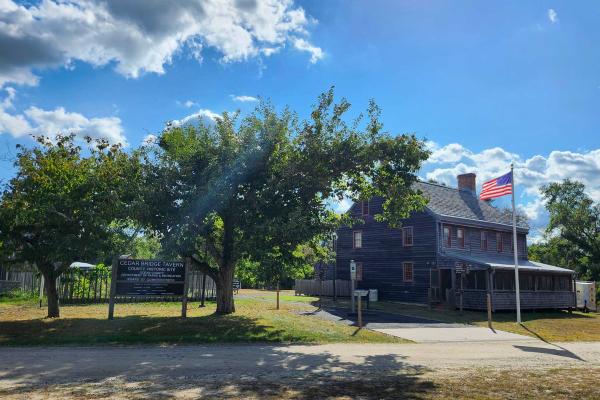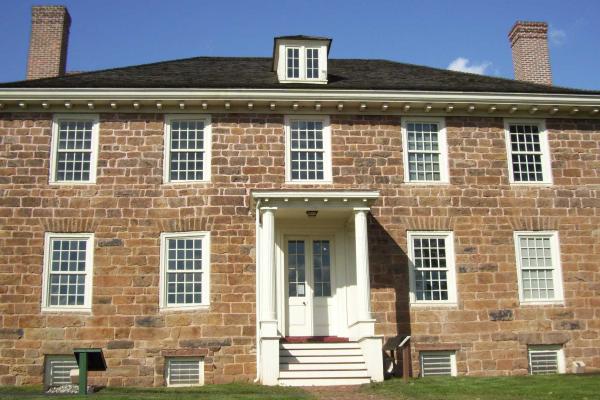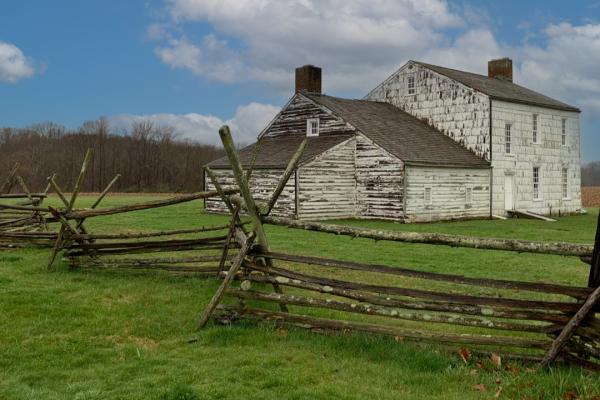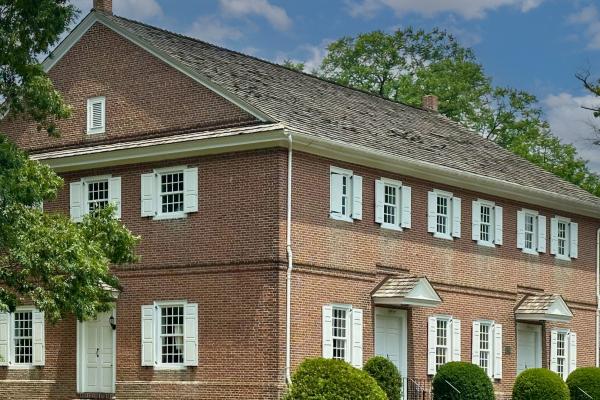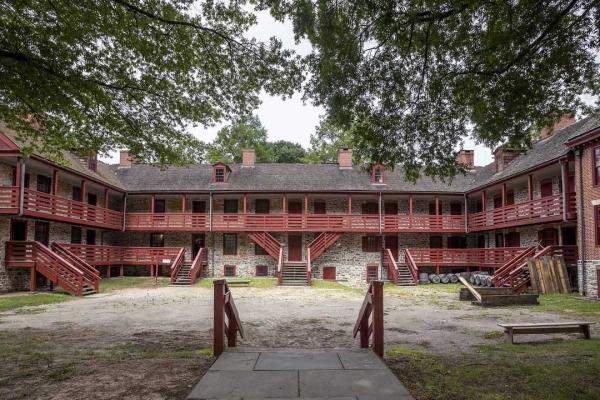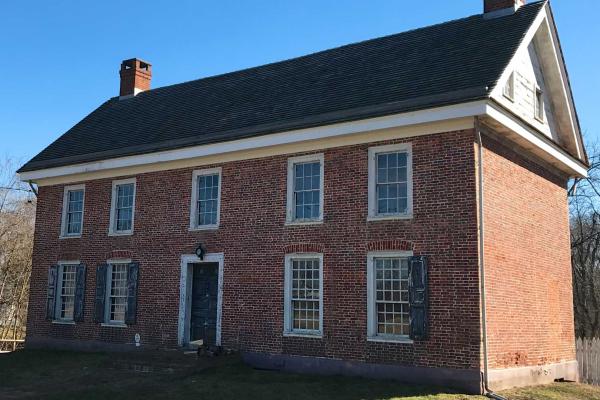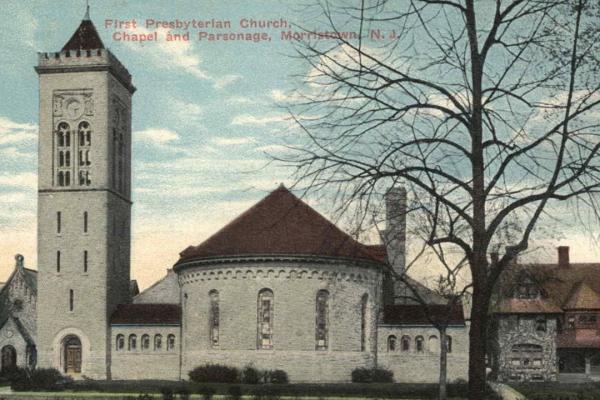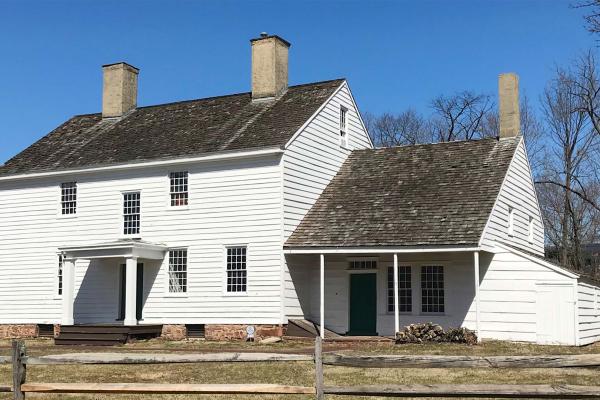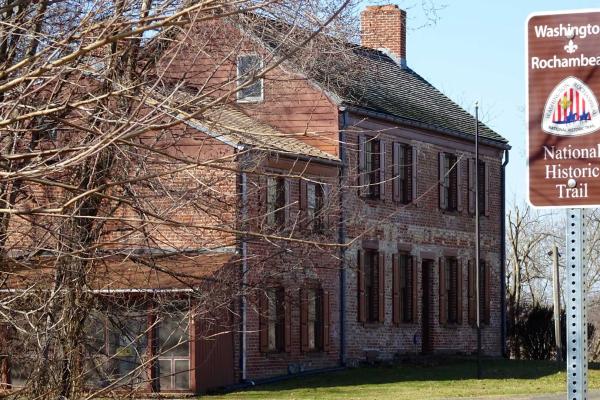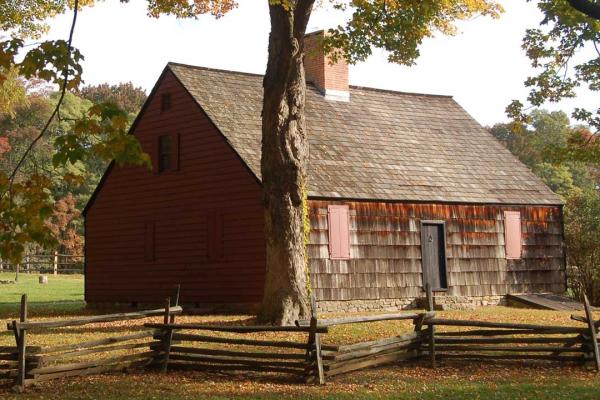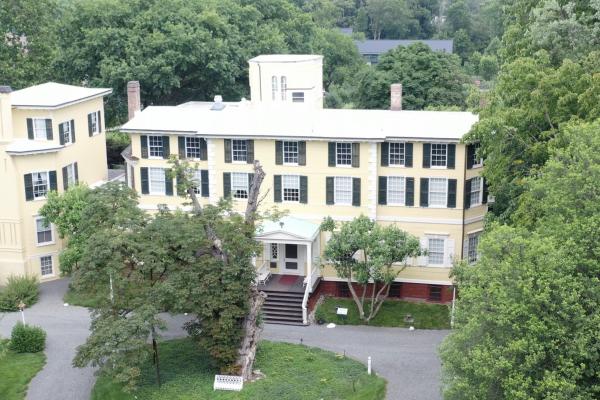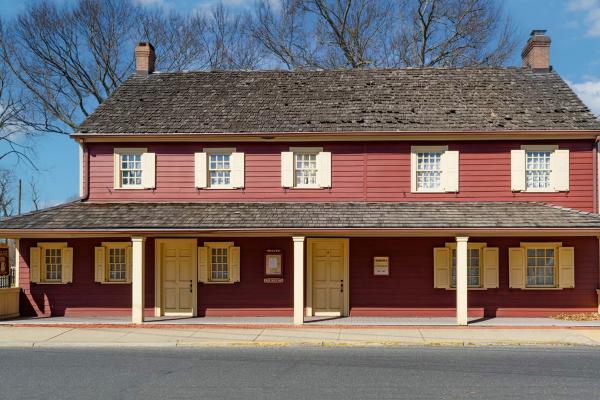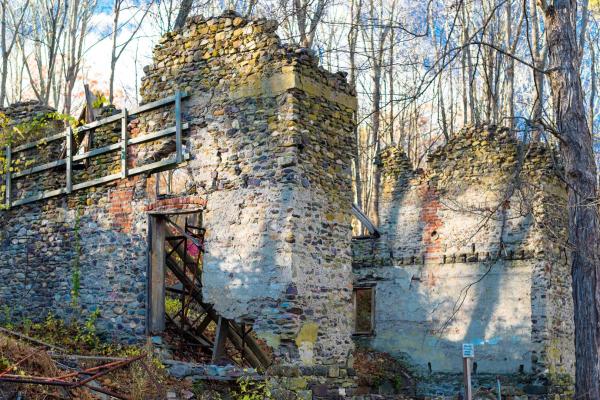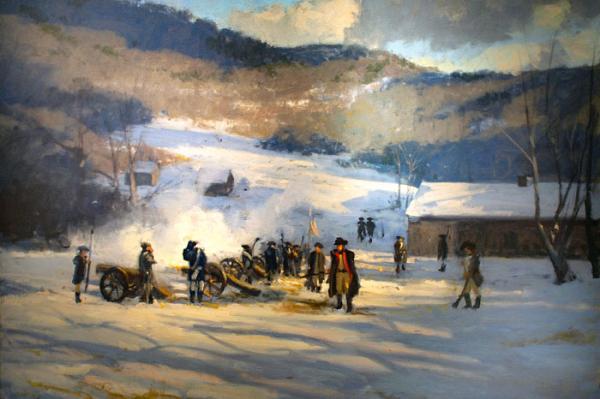The Arnold Tavern, constructed in the mid-18th century, served as Washington's headquarters from January - May 1777
A hidden gem in the borough of Princeton, the Bainbridge House was constructed in the mid-1760s and stands as a hallmark of colonial architecture...
The Caldwell Parsonage is a site of tragedy outside of the battlefield of Connecticut Farms & Springfield. The events that transpired that day still...
This Revolutionary War landmark withstood fierce fighting during the Battle of Springfield. A British cannonball struck the home — and the scar...
On December 27, 1782, Patriot forces under Captain Richard Shreve and Captain Edward Thomas were surprised at a tavern by Loyalist raider Captain John...
The Cornelius Low House, constructed in 1741, stands today as one of the finest examples of Georgian architecture in New Jersey.
This unassuming home, owned by the Covenhoven family, was requisitioned by British General Henry Clinton in the days prior to the monumental Battle of...
An ordinary farmhouse within Monmouth, it became a hotspot during the Battle of Monmouth as Charles Lee mounted a defense against advancing British...
New Jersey militia and Continentals assaulted a British column in-and-around these grounds in mid-June of 1778, just days before a continued series of...

- parking
- accessible_parking
- wheelchair_accessible
- restrooms

- parking
- accessible_parking
- wheelchair_accessible
- restrooms

- parking
- accessible_parking
- wheelchair_accessible

- parking
- accessible_parking
- restrooms
- pet_friendly
Liberty Trail History Makers
The Revolutionary War was a war unlike any other — one of ideas and ideals, that shaped “the course of human events. Explore the history and personalities from this pivotal time in American history.In 1779, after a stalemate in the north, Cornwallis went south as second in command to Sir Henry Clinton. Clinton captured Charleston in May 1780. Cornwallis pressed on to defeat General Horatio Gates at Camden, South Carolina, on August 16, 1780.
Colonel Samuel Griffin, a Virginia lawyer and officer in the Continental Army, played a key role in the 1776 campaign, leading militia units in New Jersey and engaging the Hessians near Mount Holly. Stricken by illness during critical battles, he later served as mayor of Williamsburg and a U.S. congressman after the war.
Born into Scottish nobility, William Leslie pursued a military career with the British Army, confident in his superiority over the American rebels. However, his life was cut short at the Battle of Princeton, where, despite his disdain for the revolutionaries, he was honored in death by none other than General George Washington and his old friend, Benjamin Rush.
John Glover, a skilled fisherman and merchant from Marblehead, Massachusetts, played a crucial role in the American Revolution as the commander of the 14th Continental Regiment, known for their amphibious expertise, notably evacuating Washington's army at Long Island and famously crossing the Delaware River to Trenton.

